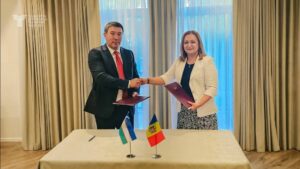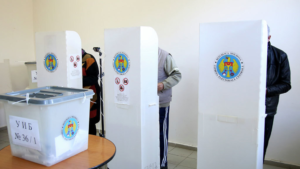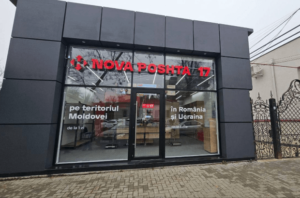
A meeting of the joint Uzbek-Moldovan Commission on Road Transport was held in Kyzylanav.
The delegations of the Ministry of Transport of Uzbekistan and the Ministry of Transport and Road Infrastructure of Moldova discussed the development of international road freight transportation and the creation of additional conditions for national carriers.
Following the meeting, a protocol was signed amending existing agreements. The document stipulates that starting from the beginning of 2026, bilateral and transit cargo transportation between the two countries will be carried out under a non-permitted system.
The agreement will create new opportunities for national carriers, simplify the transportation of goods to Europe and strengthen Uzbekistan’s export chains.

Ukrainian producers exported 66,700 tons of wheat flour during the 2024-2025 marketing year (July-June), which is 27.9% less than in the previous season, when this figure was 92,500 tons, according to the Ukrainian Flour Millers Association.
The industry association noted that about 46% of exports in the 2024/2025 season went to EU countries. The top five importers of Ukrainian flour were Moldova (20,300 tons), the Czech Republic (15,300 tons), Palestine (10,800 tons), France (3,000 tons), and Spain (2,900 tons).
Exports of other types of flour in the 2024/2025 season amounted to 4.6 thousand tons (in 2023/24 MY – 5.4 thousand tons). The share of EU countries in terms of export volumes was 14% (27% in 2023/2024 MY). The five countries to which other types of flour were supplied in 2024/25 MY were Moldova (3.2 thousand tons), Israel (0.5 thousand tons), Croatia (0.2 thousand tons), Bulgaria, and Spain (0.1 thousand tons each).
CZECH REPUBLIC, FLOUR, FRANCE, IMPORTER, MOLDOVA, PALESTINE, SPAIN

Moldovan parliamentary elections scheduled for September 28Moldovan parliamentary elections will be held on September 28, a decision to this effect was adopted at a parliamentary session on Thursday.
Moldova has a parliamentary form of government, under which the powers of the president are limited. Parliamentary elections are held every four years.
The last one was held on July 11, 2021. According to the legislation, the next elections must be held within 90 days after the four-year anniversary of the approval of the mandates of elected deputies. This means that the elections must be held between July 26 and October 26, 2025.
Earlier, the Experts Club think tank released a video analysis dedicated to the most important elections in the world in 2025, for more details see here –

In the period from 2022 to January-March 2025, Moldova imported 99.22% of soybeans from Ukraine, which supplied 56.64 thsd tonnes of the total imports of 57.08 thsd tonnes, according to the Moldovan online resource agroexpert.md.
According to the report, the total trade turnover for the analyzed period amounted to 71.42 thsd tonnes, including 79.9% of imports and 20.1% of exports of domestic beans.
Ukraine was the leader in the supply of soybeans throughout the analyzed period. In 2022, it accounted for 99.99% of imports (14.84 thsd tonnes), in 2023 – 97.19% (10.08 thsd tonnes), in 2024 – 99.50% (30.20 thsd tonnes), and in the first quarter of 2025 – 9%.
Other importing countries had a much smaller share. Thus, Germany ranked second with a share of 0.39% of total imports (0.22 thousand tons), with all imports from this country in 2023. Romania is on the third place with the share of 0.26% (0.15 thsd tonnes), the main volume of imports from this country was in 2024.
At the same time, Moldova exported soybeans to 10 countries in 2022-January-March 2025 and totaled 14.34 thsd tonnes.

Nova Poshta, the leader in express delivery in Ukraine, has set a record in Moldova by processing 38,137 parcels in one day on February 28, which is more than 50 shipments every minute, the company’s press service reports.
“Nova Poshta in Moldova set the record thanks to fast delivery from the world’s largest online stores, such as iHerb, Makeup, Zapatos, Temu, Aliexpress, and others. On February 28, 2025, the company processed 38,137 parcels in one day, which is more than 50 shipments every minute,” the press service of Nova Poshta said in a statement on Wednesday.
In February, 88% of all parcels in Moldova came from foreign marketplaces. The most popular goods among Moldovan buyers are clothes, shoes, cosmetics, electronics and household appliances, the press service noted.
“This record is the result of the trust of our customers and the daily work of the Nova Poshta team in Moldova. Moreover, in February, we processed 714,805 shipments, which is 18% more than in the whole of 2022. This is the absolute maximum in the history of Nova Poshta’s work in Moldova,” the press service of the CEO of Nova Poshta in Moldova quoted Sergei Shapran as saying.
According to the report, the previous record was set on December 20, 2024, when Nova Poshta processed 34,476 parcels in Moldova per day.
“Nova Poshta in Moldova has expanded its network to 61 delivery points, 260 post offices and 31 branches. The company has implemented a system of address storage by cell number in the branches, which reduced the time to find a parcel from 3 minutes to 45 seconds. A new sorting terminal with a modern train sorter system was launched in Chisinau, which operates 24/7. Each parcel is carefully dispatched, which guarantees accurate delivery and reduces the risk of loss.
As reported, last year Nova Poshta doubled the number of processed parcels in Moldova to almost 4 million. The number of shipments in Moldova increased by 26% to 778 thousand. The number of international shipments quadrupled compared to 2023 to 3 million.
Nova Poshta’s presence with a network of post offices in Moldova covers 20 cities in the country, including Briceni, Edinet, Ungheni, Balti, Comrat, Cahul, Orhei, Taraclia, Ceadir Lunga, Ialoveni, Hincesti, Caşani, Stefan Voda, Falesti, Soroca, Guma, Nisporeni, Leova, Novi Aneni. A number of them are located in the stores of the largest supermarket chains – Kaufland, Linella, Merci and Local.